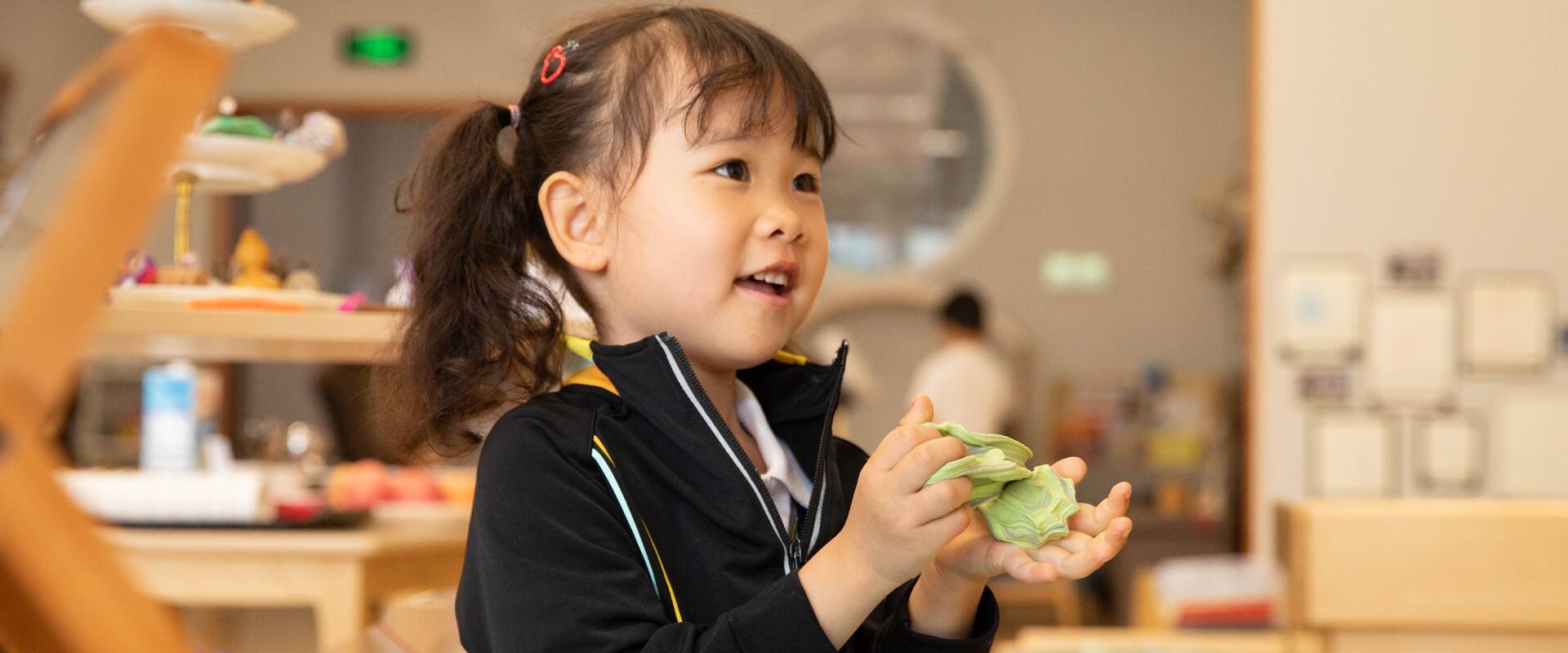
The project-based learning at Huili Nursery Hangzhou culminated in the harvest festival celebration at the end of November. During the explorations, children were thinking about harvest, appreciating the gift from nature and marvelling at the wonder of harvest. Their speech and actions demonstrate the Huili identities of intellectual, individual, independent, inspired and inclusive. Today, let us retrospect on the exciting harvest festival at the nursery and bathe in the joy of harvest.
In the UK, schools and various institutions have come together to celebrate the harvest since the 1800s, focusing on exploring seasonal changes and the origin of our crops.
This is where we start our harvest festival journey in the nursery. As children grow, they must build a connection to the natural world around them. Developing an understanding of the life cycles we co-exist with is a fundamental experience children should be given.
Intellectual: thought-provoking questions
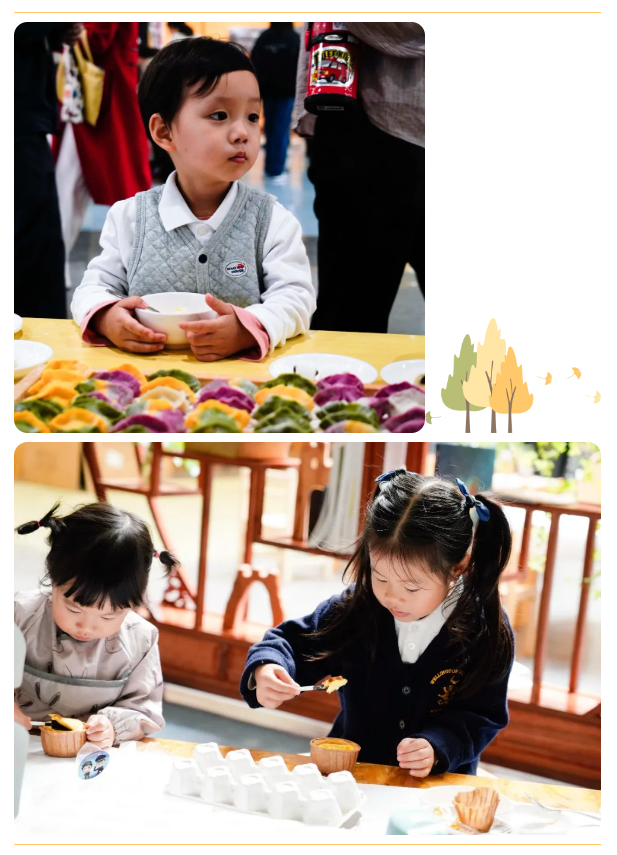
When we ask a child how long does it take to make a dumpling? What sort of answer would they give? How deep could their knowledge go? Do they know the trials and tribulations of the grain? Are they aware of the hard-working farmers’ life? Can they recall the delicious family recipe for homemade dumplings? This is the sort of journey we set out to provide children during our harvest festival investigations.
Individual: from planning to recording actions
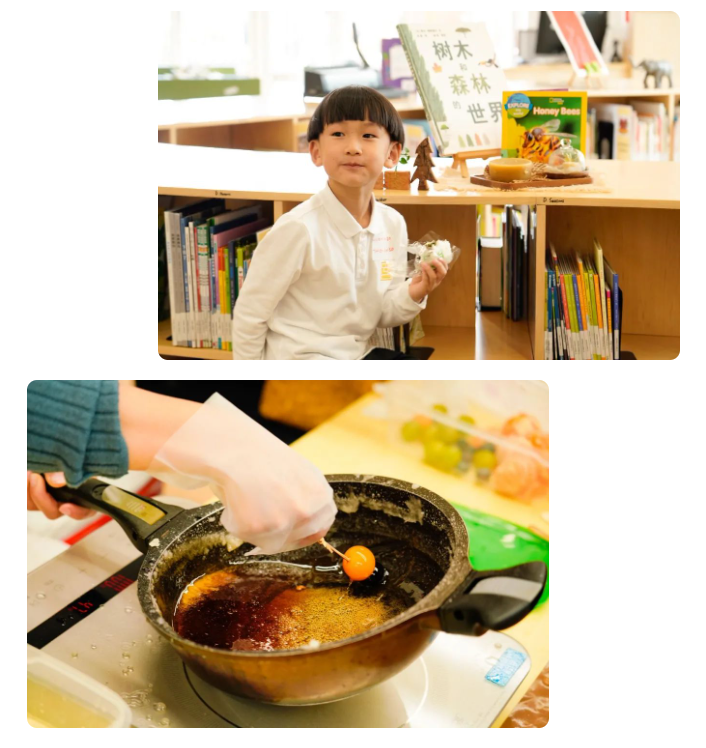
Each class chose a different crop to investigate over a series of weeks, exploring other elements of the crop according to each classes learning needs, tailoring their studies to meet the project and KDIs of the class. Ensuring that the expedition of food each class was about to embark on would be purposeful and significant.
Through children’s investigations, they could connect in a meaningful way with the ecosystems, processes, and cycles that we exist with, allowing children to explore an essential element of their lives while developing a further understanding of the value of the food they eat every day.
During the children’s journey of the process of food, their learning was documented through photography, theory drawing and video, which was collated together and shared on the day through displays, books, and artefacts.
Independent: from research trips to collecting information
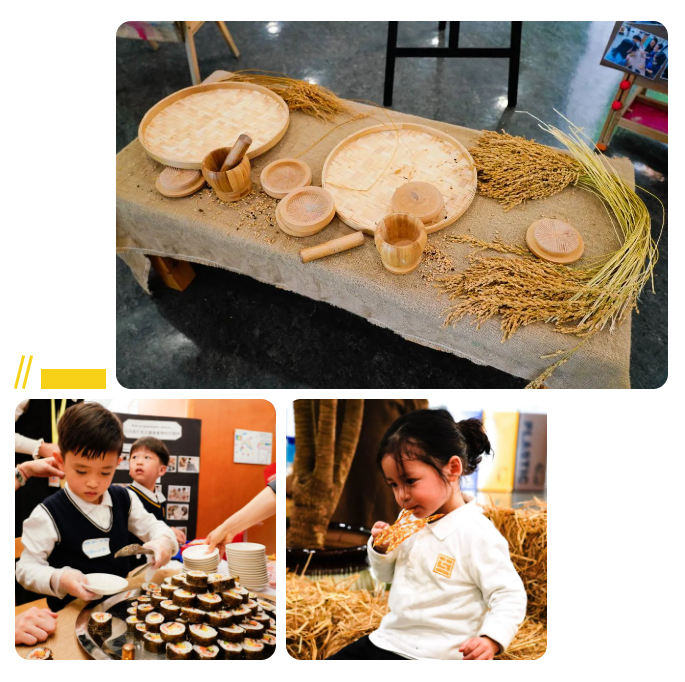
While in the exploration phase, some children went on research trips to learn how to harvest the raw grains from the field, getting real experiences that reflect the labour of the farmers and community members who help provide food for us every day.
To answer critical questions, children explored provocations and researched using books, computers and experts to learn more about their chosen crop, knowing how it is grown and how to use it to make food.
Inspired: from developing recipes to sharing delicious food
Children then delved into and developed recipes and made dishes from scratch, learning how to use cooking equipment safely and follow food safety regulations and recipes to create a dish they could share with their friends and the community.
Inclusive: harvest festival witnesses friendship building
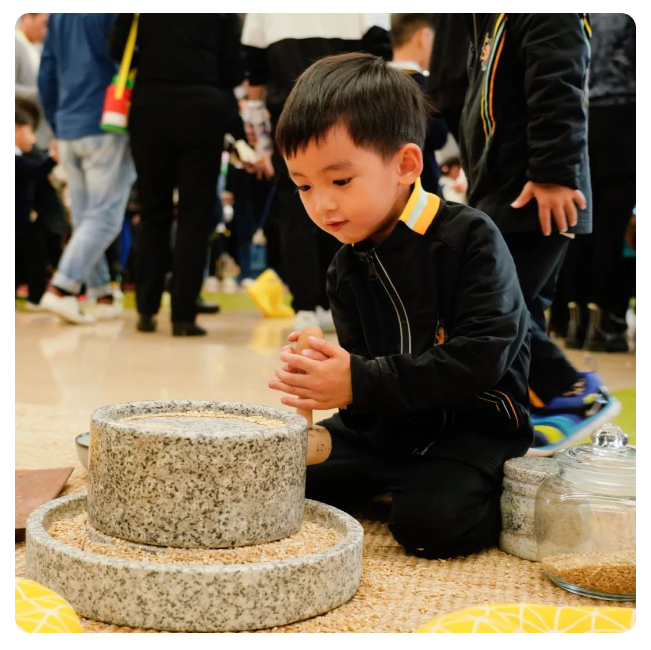
On the festival day, teachers, children and parents came together to run their stalls, exchanging huiliB for delicious dishes linked to each class’s studies. Children came up with various deals and hooks to entice customers, from special prices to pamphlets. Each class stall was run by parent-children volunteers, with children counting out the change and serving food to patrons, gaining expertise in managing their stalls. Classes also produced posters, leaflets, and signs, using persuasive language to encourage customers to come and try their delicacies.
Some parents volunteered on their own stalls, with snacks, Hangzhou speciality dishes and sugar painting available for children. The involvement strengthens our community connection.
Thank you for keeping us company
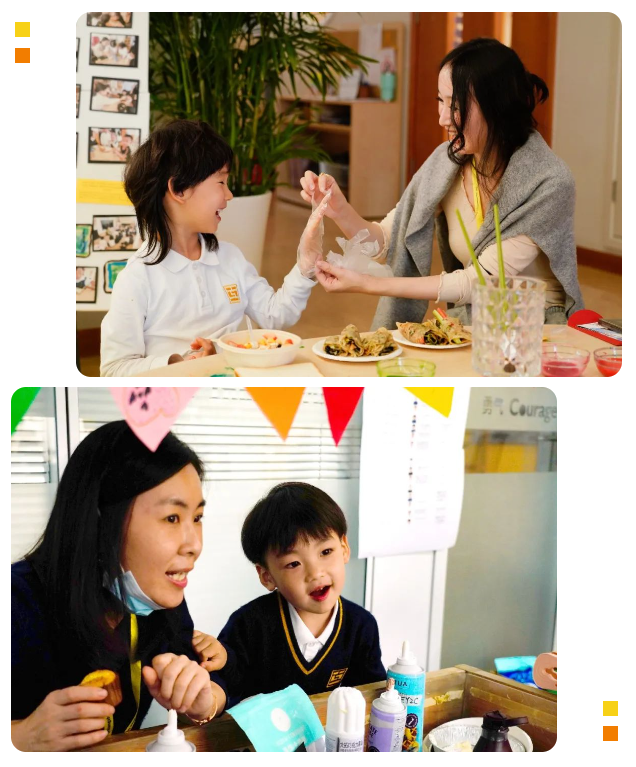
Our harvest festival was a monumental success, and we hope to solidify this as a Huili tradition that brings our family, friends and food closer every year.